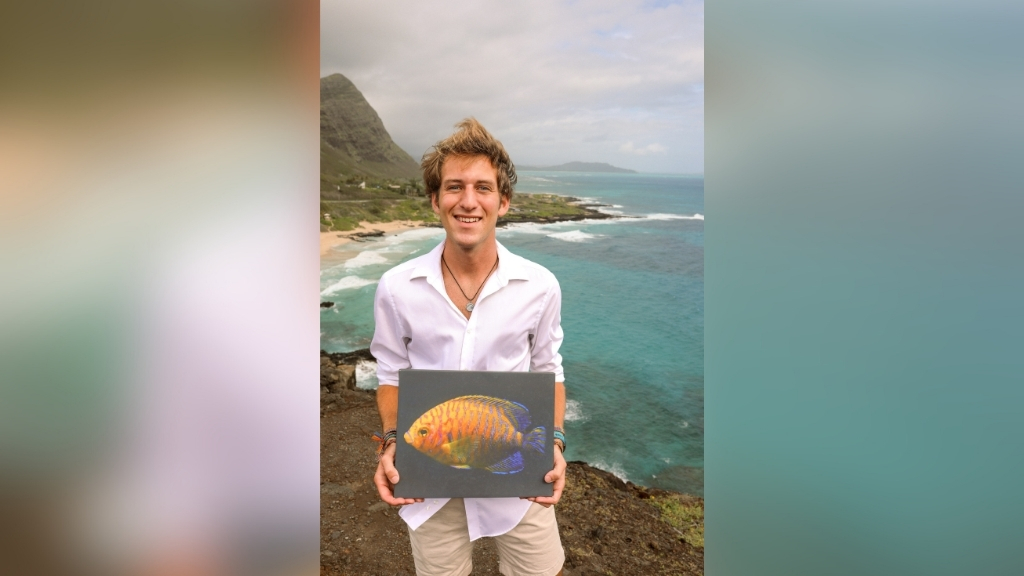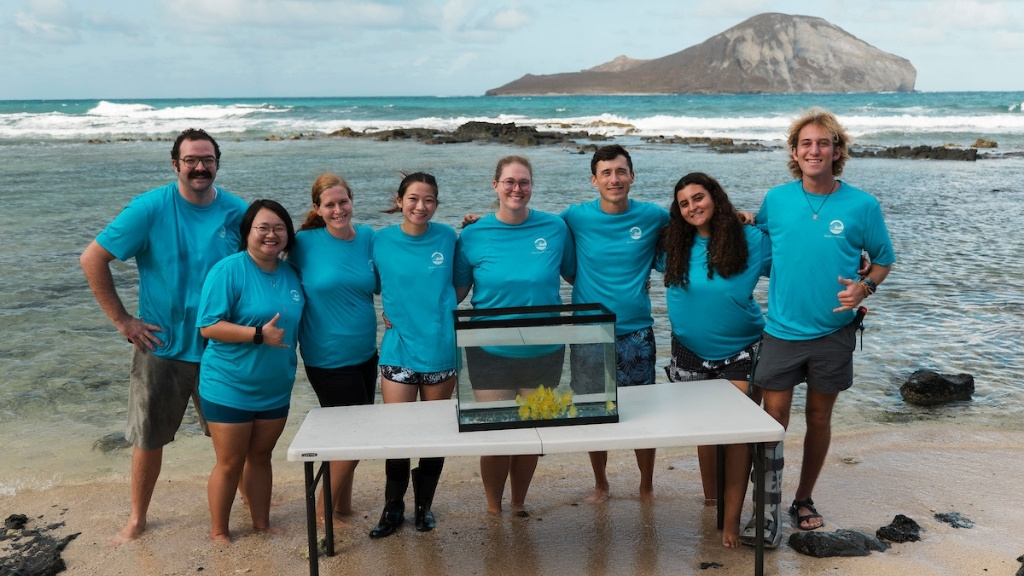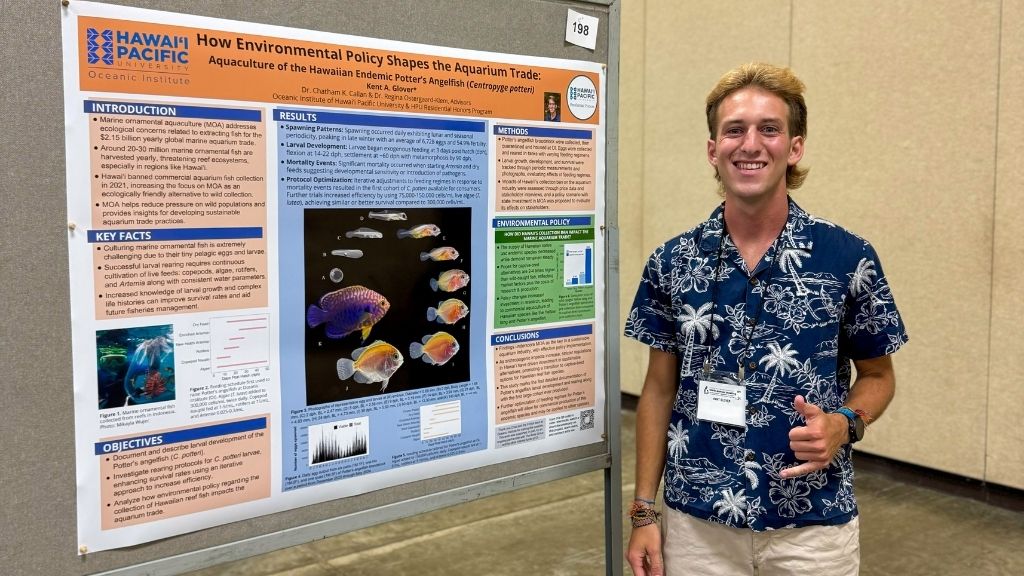When Kent Glover enrolled at Hawaiʻi Pacific University (║┌┴╧└╧╦╛╗·), he already had his sights set on the Oceanic Institute. As a high school student in Alabama, Glover had been captivated by news that scientists in Hawaiʻi had successfully bred the Yellow tang—a landmark achievement in the world of ornamental aquaculture.
“At the time, that was a huge deal, and still is,” Glover said. “It completely changed what we know and how we do things now. I knew then that I had to be a part of this.”
His determination to make an impact on fisheries science carried Glover from ║┌┴╧└╧╦╛╗· undergraduate to published researcher to now full-time Research Assistant at the Oceanic Institute, where he works at the intersection of marine conservation and aquaculture innovation.
Glover’s recent , details the successful rearing of the Potter’s angelfish (Centropyge potteri), a vibrant reef species found only in Hawaiian waters.
The study, which began as his undergraduate capstone project, represents the first replicated, species-specific protocol for raising Potter’s angelfish in captivity. “I was a volunteer intern at the Oceanic Institute, and we were raising species in captivity to offset collection from the reefs here,” he explained. “I was lucky to start the early phases of the research two years before my capstone.”
As a member of ║┌┴╧└╧╦╛╗·’s Residential Honors Program, Glover took an interdisciplinary approach to his project, combining aquaculture science with environmental economics and policy, which coincided with a 2021 ban on collecting




